Filter by
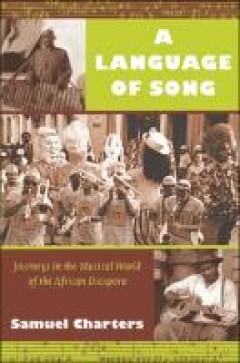
A Language of Song: Journeys in the Musical World of the African Diaspora
In A Language of Song, Samuel Charters—one of the pioneering collectors of African American music—writes of a trip to West Africa where he found “a gathering of cultures and a continuing history that lay behind the flood of musical expression [he] encountered everywhere . . . from Brazil to Cuba, to Trinidad, to New Orleans, to the Bahamas, to dance halls of west Louisiana and the great c…
- Edition
- -
- ISBN/ISSN
- 9781478090717
- Collation
- -
- Series Title
- -
- Call Number
- -
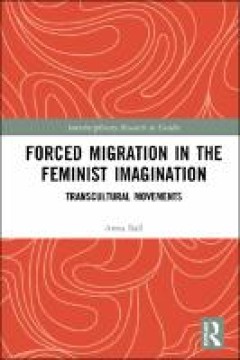
Forced Migration in the Feminist Imagination
Forced Migration in the Feminist Imagination explores how feminist acts of imaginative expression, community-building, scholarship, and activism create new possibilities for women experiencing forced migration in the twenty-first century. Drawing on literature, film, and art from a range of transnational contexts including Europe, the Middle East, Central America, Australia, and the Caribbean, …
- Edition
- -
- ISBN/ISSN
- 9781000459104
- Collation
- -
- Series Title
- -
- Call Number
- -

Mindfulness and Meditation at University : 10 Years of the Munich Model
Why should mindfulness and meditation be taught at universities? What impact could the establishment of such programs have on students and on the education system itself? Andreas de Bruin showcases the remarkable results of the first ten years of the Munich Model »Mindfulness and Meditation in a University Context« - a program started in the year 2010 in which 2000 students have already parti…
- Edition
- -
- ISBN/ISSN
- 9783839456965
- Collation
- 216 halaman
- Series Title
- -
- Call Number
- 370 halaman

Rereading Marx in the Age of Digital Capitalism
The 'end of history' has not taken place. Ideological and economic crisis and the status quo of neoliberal capitalism since 2008 demand a renewed engagement with Marx. But if we are to effectively resist capitalism we must truly understand Marx: Marxism today must theorise how communication technologies, media representation and digitalisation have come to define contemporary capitalism. There …
- Edition
- -
- ISBN/ISSN
- 9781786805188
- Collation
- -
- Series Title
- -
- Call Number
- -

Twilight of the Anthropocene Idols
Following on from Theory and the Disappearing Future, Cohen, Colebrook and Miller turn their attention to the eco-critical and environmental humanities’ newest and most fashionable of concepts, the Anthropocene. The question that has escaped focus, as “tipping points” are acknowledged as passed, is how language, mnemo-technologies, and the epistemology of tropes appear to guide the accele…
- Edition
- -
- ISBN/ISSN
- 9781785420160
- Collation
- -
- Series Title
- -
- Call Number
- -

Gallucci's Commentary on Dürer’s 'Four Books on Human Proportion'
"In 1591, Giovanni Paolo Gallucci published his Della simmetria dei corpi humani, an Italian translation of Albrecht Dürer’s Four Books on Human Proportion. While Dürer’s treatise had been translated earlier in the sixteenth-century into French and Latin, it was Gallucci’s Italian translation that endured in popularity as the most cited version of the text in later Baroque treatises, co…
- Edition
- -
- ISBN/ISSN
- 9781783748624
- Collation
- -
- Series Title
- -
- Call Number
- -
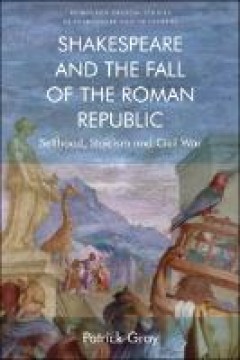
Shakespeare and the Fall of the Roman Republic
Explores Shakespeare's representation of the failure of democracy in ancient Rome This book introduces Shakespeare as a historian of ancient Rome alongside figures such as Sallust, Cicero, St Augustine, Machiavelli, Gibbon, Hegel and Nietzsche. It considers Shakespeare’s place in the history of concepts of selfhood and reflects on his sympathy for Christianity, in light of his reception of me…
- Edition
- -
- ISBN/ISSN
- 9781474427487
- Collation
- -
- Series Title
- -
- Call Number
- -

The Apartment Plot
Rethinking the significance of films including Pillow Talk, Rear Window, and The Seven Year Itch, Pamela Robertson Wojcik examines the popularity of the “apartment plot,” her term for stories in which the apartment functions as a central narrative device. From the baby boom years into the 1970s, the apartment plot was not only key to films; it also surfaced in TV shows, Broadway plays, lite…
- Edition
- -
- ISBN/ISSN
- 9780822392989
- Collation
- -
- Series Title
- -
- Call Number
- -
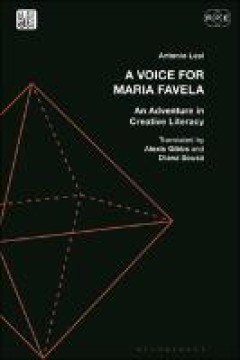
A Voice for Maria Favela
This open access book, originally published in Portuguese in 1988 and now available in English for the first time, describes the Brazilian educator, Antonio Leal's, experiences teaching so-called “unteachable” children in Rio de Janeiro’s favelas. A Voice for Maria Favela tells the story of how Leal considers what the children bring to the class, gradually engaging them in developing a na…
- Edition
- -
- ISBN/ISSN
- 9781350247598
- Collation
- -
- Series Title
- -
- Call Number
- -
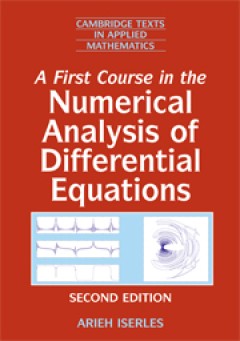
A First Course in the Numerical Analysis of Differential Equations
Numerical analysis presents different faces to the world. For mathematicians it is a bona fide mathematical theory with an applicable flavour. For scientists and engineers it is a practical, applied subject, part of the standard repertoire of modelling techniques. For computer scientists it is a theory on the interplay of computer architecture and algorithms for real-number calculations. The te…
- Edition
- -
- ISBN/ISSN
- 9780511995569
- Collation
- -
- Series Title
- Cambridge Texts in Applied Mathematics (44)
- Call Number
- -
 Computer Science, Information & General Works
Computer Science, Information & General Works  Philosophy & Psychology
Philosophy & Psychology  Religion
Religion  Social Sciences
Social Sciences  Language
Language  Pure Science
Pure Science  Applied Sciences
Applied Sciences  Art & Recreation
Art & Recreation  Literature
Literature  History & Geography
History & Geography